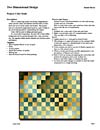
CCSU Design One, Art 120 (two dimensional design)
Color Grid project
Media used: acrylic paint on Bristol board
Description:
This is a multi stage project involving complimentary colors and the values
and mixtures between them. It introduces the use of acrylic paints and brushes.
This project uses of a structured composition based on a grid. It helps
to set a level playing field by standardizing the shapes.
Color will be used to define pictorial space.
In a successful composition, the grid will at times define background and
for ground through color, value and intensity. The apparent depth should undulate
into between space and flatness.
Supplies:
•
Hard Graphite Pencil: to lay out grid.
•
Ruler
•
Acrylic paints
•
Small flat brushes, of quality
•
Mixing tray
•
Smooth bristol board for final painting.
Process and Stages:
General lecture and demonstration on color and mixing of paint and use of brushes.
How to create tints, tones, and variations in hue and saturation with the use
of compliments.
Part A.
1. Students mix a step scale of hue tints and tones.
2. Make a second step scale of 2 complementary colors.
This can take a lot of adjusting.
Part B.
2. Lightly pencil in a 1 inch grid on bristol board.
3. The strategy is to approach project as two separate fields of alternate squares
(a checkerboard) of two split complementary color
schemes.
4. Colors systems are laid in one set of checker squares at a time as a thin
neutral wash.
5. Observe results and discuss possible adjustments to create patterns of flatness
and contrast.
6. Paint is built up mixing and applying the colors that will achieve the dynamics
previously worked out.
Preserve and refine edges to maintain the grid.
7. Go back and make changes as needed to unite the entire composition as a single
painting.
Printable pdf file of Color Grid project
Support links with color adjustable wheels:
Examples:

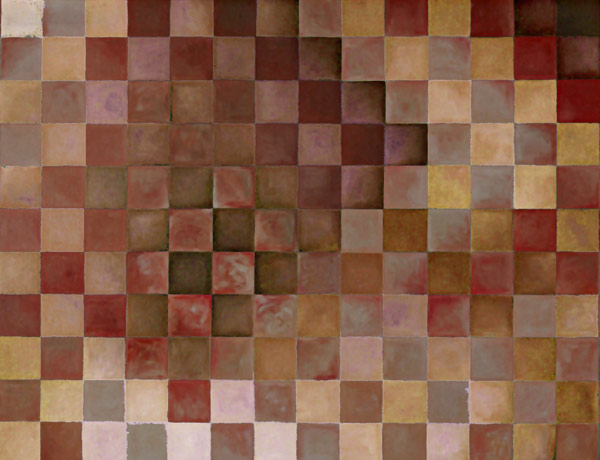
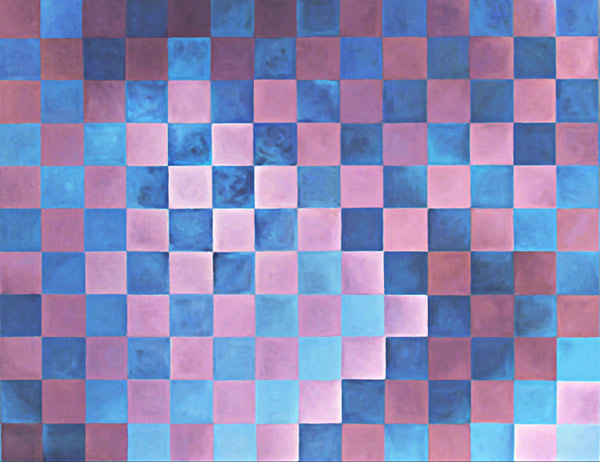
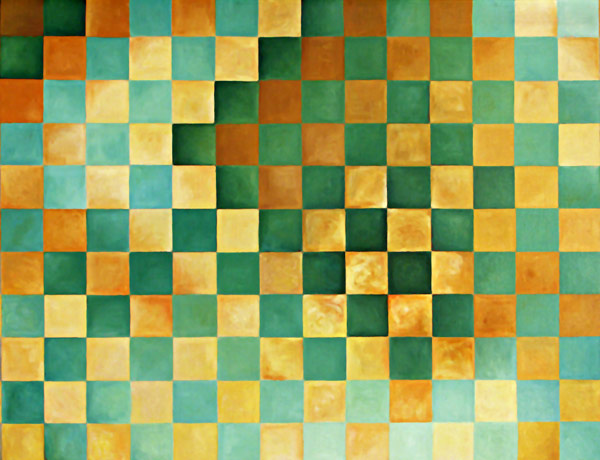
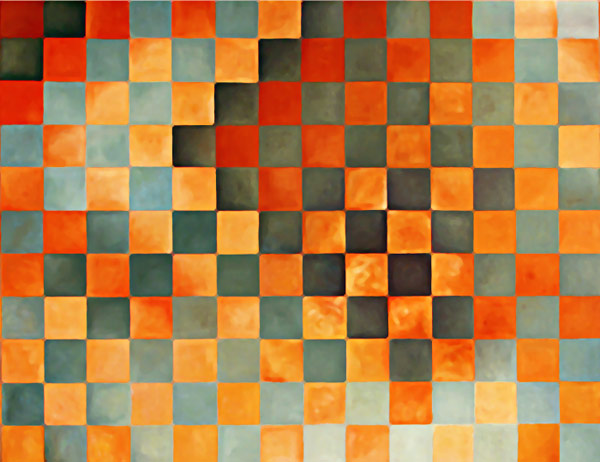
Class Examples:
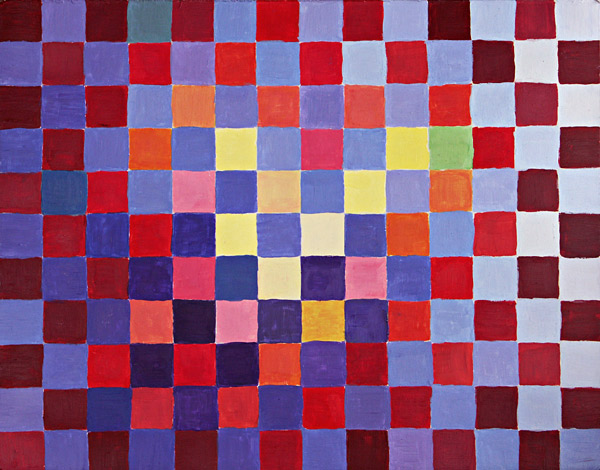
J. Vigue
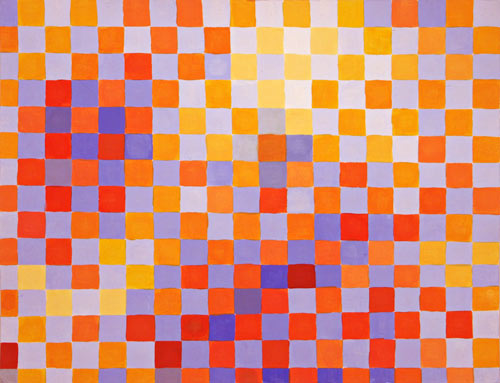
A. Bernier
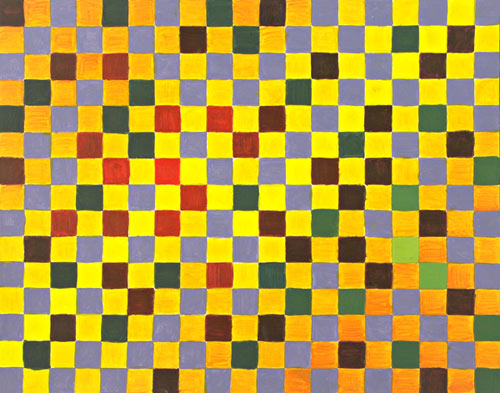
F. Sultana
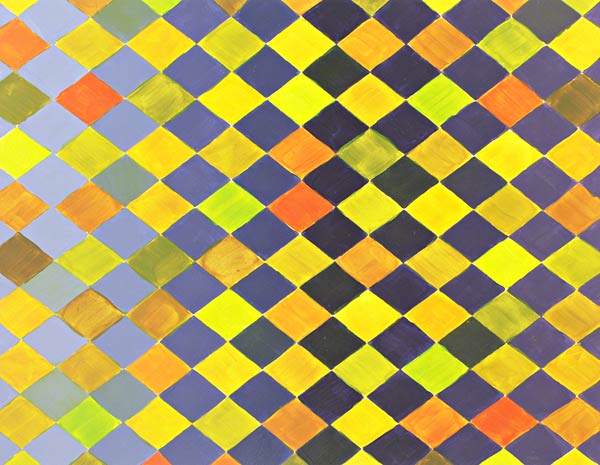
A. Lopez
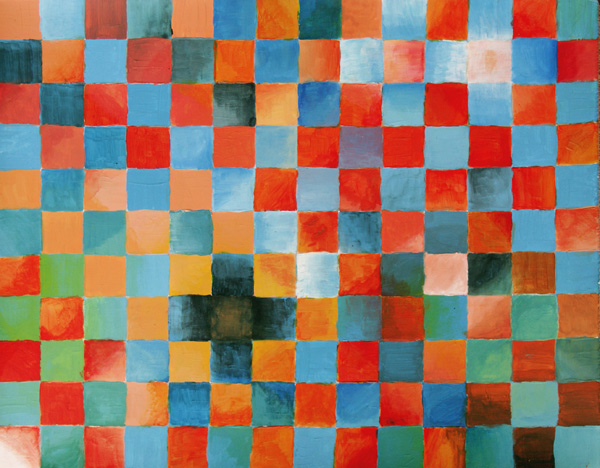
M. Schmidt
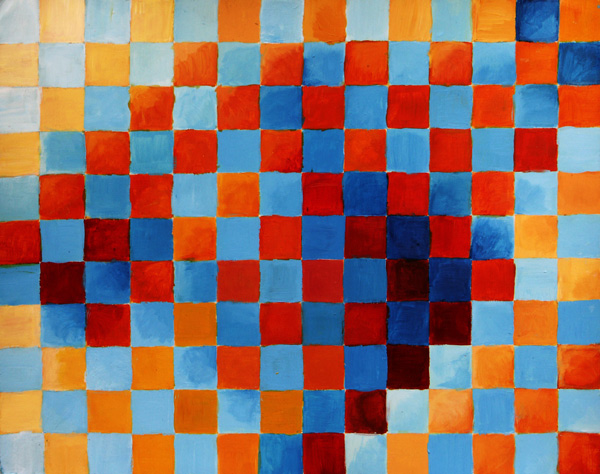
R. Therrien
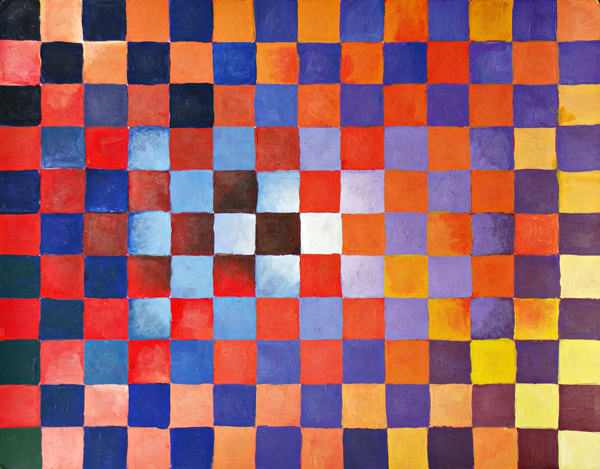
T. Marshall